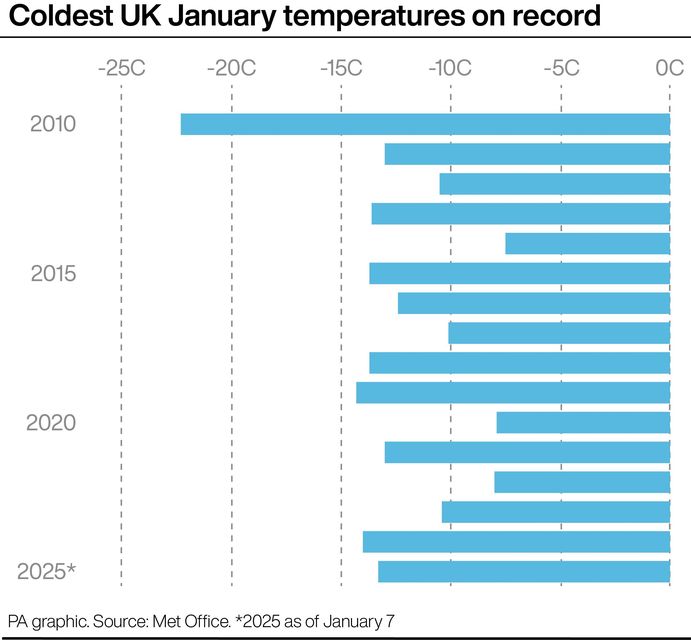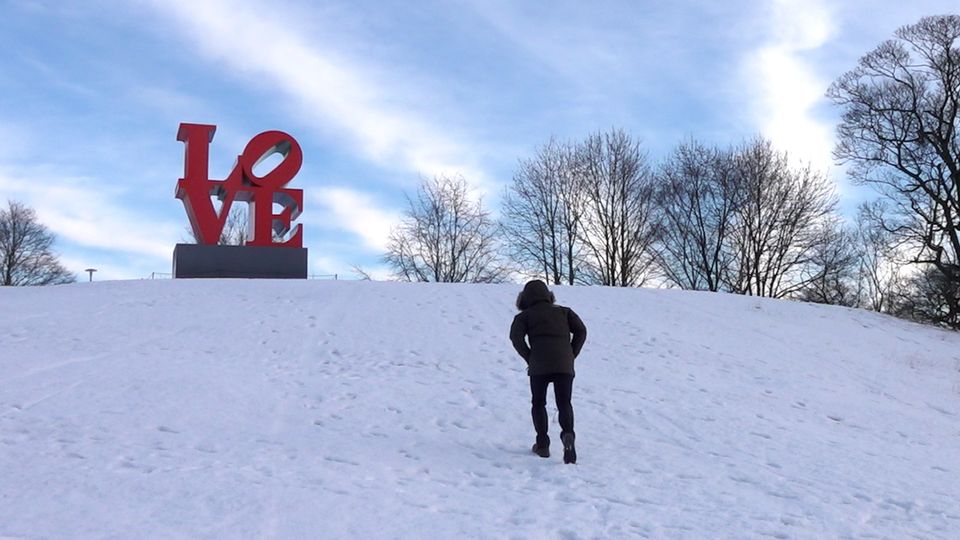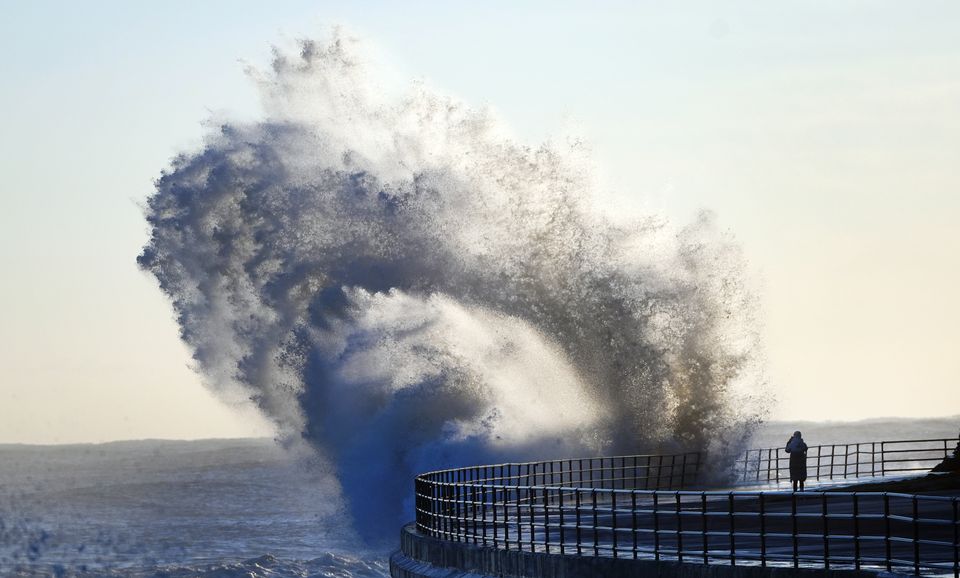The UK is braced for an icy blast, with temperatures set to plummet as low as minus 16C, the coldest of the winter so far.
Parts of England were still subject to ice and snow warnings on Wednesday morning, and the Met Office said further alerts are likely to be issued as the week goes on.
A new yellow warning for snow and ice has been issued for northern Scotland and Northern Ireland from noon on Wednesday until midnight on Thursday as sleet and snow showers are set to continue for the rest of Wednesday and much of Thursday.
(PA Graphics)
Temperatures are set to drop sharply, with lows of minus 16C possible in Scotland and northern England overnight on Thursday and sub-zero temperatures expected across the country.
Oli Claydon, spokesman for the Met Office, told the PA news agency it will be “bitterly cold” on Thursday night.
He said the lowest temperatures will be recorded in rural Scotland and rural northern England where there is lying snow, cloudless skies and very cold airflow.
A temperature of minus 14C would equal the lowest seen in this month last year, recorded in Dalwhinnie in the Scottish Highlands on January 17 2024.
But a temperature of minus 16C would be the lowest recorded in January in the UK for 15 years, since minus 22.3C was logged in Altnaharra in the Highlands on January 8 2010, according to Met Office data.
Lows of minus 20C have not been reached since minus 23C was recorded at Braemar, Aberdeenshire, in February 2021.
People in Yorkshire woke to wintry scenes on Wednesday after snow hit overnight, while sleet and snow are forecast for southern England in the afternoon.
The UK Health Security Agency (UKHSA) has extended its cold weather health alert for all of England until Sunday.
Sculptures in the snow at Yorkshire Sculpture Park in Wakefield, West Yorkshire (Richard McCarthy/PA)
Amber alerts issued on Thursday have been extended and will now run until January 12, meaning a rise in deaths is likely, the agency said.
Dr Agostinho Sousa, head of extreme events and health protection at the UKHSA, said: “We are extending the duration of our Cold-Health Alert, since the Met Office are forecasting that the low temperatures we are seeing will continue further into this week, with snow and icy conditions likely to persist.
“This weather can have a serious impact on the health of some people, including those aged 65 and over and those with pre-existing health conditions, and it is therefore vital that we continue to check in on friends, family and neighbours that are most vulnerable.
“These people could be more at risk of heart attacks, stroke and chest infections as a result of cold temperatures.”
The Met Office yellow weather warning for snow covering southern counties of England remains in place until midnight on Wednesday.
Fresh flurries of snow could hit this area on Wednesday afternoon, with the possibility of up to 4in (10cm) over higher ground.
Meanwhile, weather warnings issued on Tuesday for snow and ice covering the Midlands, parts of North Wales, the north west of England, west and northern parts of Scotland as well as Northern Ireland remain in place until midday on Wednesday.
The country has been hit by widespread flooding in recent days and a danger to life flood warning was issued for Barrow upon Soar in Leicestershire as firefighters had to rescue dozens of people stranded in rising water.
Huge waves smash against the sea front at Whitley Bay in North Tyneside (Owen Humphreys/PA)
Scores of flood warnings and alerts remain in place for England but more than 200 have been removed in the last 24 hours and the weather is set to be drier over the next few days.
“Much of the UK is seeing a much drier day and some bright conditions away from coasts,” Mr Claydon said on Wednesday.
“In those flood-affected areas it is a much better, drier picture.”
One flood warning is in place for the River Wye at Monmouth and four flood alerts are in place for the rest of Wales on Wednesday, Natural Resources Wales said.
Mr Claydon said the weather will get gradually milder over the next few days.
“Certainly by the end of the weekend we’re moving to a milder air mass and it’ll slowly get introduced across the UK through Sunday,” he said.
“By Monday, the UK will broadly be in a milder air mass and we’ll see some rain moving in from the north west into parts of western Scotland and potentially Northern Ireland as well.”


